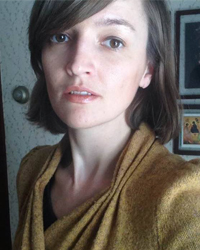Turn Your Gift with Words Inside Out
 By Tineke Bryson, Staff Writer
By Tineke Bryson, Staff Writer
Why do we writers have an ability with words?
If you’ve been following this blog for long, you might realize this is a theme I have written about before, in The Burden of Purpose. Since that time, I’ve carried on turning over rocks.
I don’t know about you, but when I first learned I had an ability with words, I immediately assumed it could only be for one reason: I was destined to publish books!
I was eleven. Mrs. Patterson called me into her office, and beaming, told me what a lovely “View from My Classroom Window” assignment I had written, and that she saw some talent in me. I felt extraordinary happiness. Yes, one day I would publish a book! I would make Mrs. Patterson even prouder!
Before this fateful day, my book-making was not based on any idea of being especially good at it. It was just something I wanted to do. Now I turned from simply enjoying writing and illustrating stories to the serious matter of becoming a writer. My attempts to impress were nothing promising. They included a mystery novella, Oh, Those Purple-Black Eyes in the Dark! I had no idea what purpose those eyes played in the plot, but I considered the story very romantic! My new teacher, Miss Campbell, carefully hid her smile.
Poems about lost love, war, and other causes of untimely death followed. I did not see anything grandiose in attempting a lament for Jephthah’s daughter or epitaphs for my own tombstone. These were the subjects of serious writers, after all.
It was in high school that my writing received some tempering. I had a no-nonsense English teacher who drew from me increasingly measured writing.
When I later studied under poet and essayist John Leax in college, I lamented that I never got to take dedicated creative writing classes in high school. All I had done besides write essays was fill journal after journal. His bemusing reply: “I’m glad you only journaled. It taught you to write without being self-conscious about it.”
But in all these years, my childhood assumption stood. It seemed a foregone conclusion that God had given me a gift with words so I could publish books.
Today, this unnerves me. I didn’t see that there could be more meaning to my love for words. And I don’t just mean that this ability translated into good grades and job performance. I saw those side benefits all along. Neither do I mean that I should have had higher goals than merely getting published.
I mean that my ability with words is foremost about appreciation, not accomplishment.
Does that sound preachy? Am I wrapping a consolation prize in expensive paper? As writers, many of us secretly rank other people as writers, editors (*cough* failed writers), and finally readers. Our gut might say, “Those with true skill publish their own books and appreciate on the side.”
That’s not true. Could we look an English professor or literary critic in the eye and say, “Those with the greatest ability with words publish their own books”? And, if editors are failed writers, why do we pay them to fix our work?
There is more than one way to be good with words. We acknowledge this to some extent, if we’re humble (or at least trying to be), but how many of us could say we would be just as proud of being an astute appreciator of words, as we would be of a publishing contract?
Most of us still think being a published author ourselves is the best-case scenario. And even if we respect editors and literary critics, etc., it’s still because they use words for personal accomplishment. How many of us could stand to be “just” a reader, forever?
This is what I want to critique: the idea that a gift with words is intended for recognition of our ability.
Why are we writing? Are words and stories enough for us in and of themselves? And if words give us pleasure, why does it matter if it was us who strung the beads or somebody else?
Yes, there’s a special pleasure in working directly with words ourselves. We aren’t motivated only by dreams of recognition; we also write simply because we enjoy creating. Yet longing to write shimmering sentences and scenes is not the primary reason we balk at being known only as a reader.
Over the past few years, I have set myself a challenge: to turn my assumptions about ability inside out.
This challenge cuts deep. I have always savored words—their sounds and etymologies. As a teen, I kept a list of my favorites (goblin, periwinkle, smog…), and I still collect interesting words. But I also kept a book for copying out beautiful passages, and my response to these was pleasure mixed with resentment. Each new beauty was an opportunity stolen from me. I would not be able to write that sentence myself now. Such bald arrogance! But underneath the arrogance was insecurity. How was I to make my mark on the literary world when, day by day, writers were plundering the possibilities of the English language?
Have you ever marveled at how many people write? I know lots of writers because of my work with The One Year Adventure Novel, but my job also prompts people who aren’t in the program to tell me about their dreams to write a book. I sometimes wonder if literacy populates all societies through time with would-be authors?
My instinct is to fear—or condescend to—this bewildering crowd of writers. They are either competition or a painful reminder of how ordinary my ambitions are. But, instead, I could view these writers and their works as more opportunity to enjoy words!
My reaction to Katherine Rundell’s novel Cartwheeling in Thunderstorms is a good example. Rundell, like me, spent her childhood between worlds; the novel is set in Zimbabwe and England. The writing evokes strong sensory memories from my own past in Africa. Reading it, I was all admiration, but also aghast. I felt as though she had gotten there first—that if she hadn’t written Cartwheeling in Thunderstorms, I might have. Well, a version set in West Africa.
But even if I could produce a novel like hers, the truth is, I haven’t. She has. How intolerable to resent a fellow writer when I could, instead, aspire to be her biggest fan. I am in a special position to appreciate her word choices and her imagery. Because of my ability and my past, I can, perhaps, offer appreciation like few others could.
Because isn’t that, too, a worthy way to use my gift with words? To receive the creation of another person with understanding and respect? It is a worthy purpose whether I am given the opportunity to share with the author or not.
I put it to you. Let’s think in terms of appreciating words and less in terms of using our gift with words. There is something about the expression “a gift with—” that suggests manipulation, even if it’s well-intentioned. Breaking words to shape them to our hand. Words becoming a tool for accomplishment.
I don’t pretend to have mastered this challenge. The success of other writers still stings—this story of reading Cartwheeling in Thunderstorms was not in the distant past! But I am growing into a more layered understanding of my ability. I haven’t managed this by sheer will power, though, so I would like to share with you some practical ways to nurture the art of appreciation. I’ll be back with a second post!
…
How might you use your gift with words to appreciate the work of others?
…
About Tineke
 Tineke Bryson (Honors in Writing, Houghton College) lives in the center of a pretty complicated Venn diagram, right where fiction and nonfiction, creating and editing, and North American, European, and West African culture meet. Tineke grew up abroad, and before joining The One Year Adventure Novel, she worked as an editor.
Tineke Bryson (Honors in Writing, Houghton College) lives in the center of a pretty complicated Venn diagram, right where fiction and nonfiction, creating and editing, and North American, European, and West African culture meet. Tineke grew up abroad, and before joining The One Year Adventure Novel, she worked as an editor.
She and her husband presently live in Edinburgh, Scotland. (Read about her move in “Musings on Adventure from an Anxious Protagonist”.) She is The One Year Adventure Novel‘s resident creative nonfiction enthusiast. An especially avid reader of landscape writing, Tineke also loves British and African history, reading middle-grade fiction, and collecting moths.


